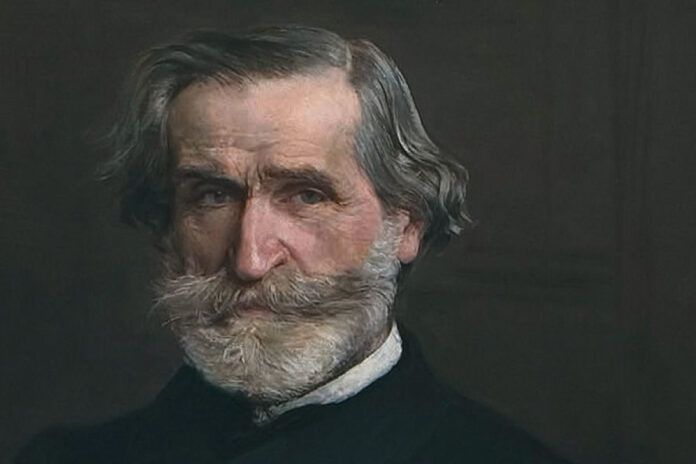Giuseppe Verdi stands as one of the most iconic and influential composers in the history of opera. His works, renowned for their dramatic intensity, melodic beauty, and profound emotional impact, have left an indelible mark on the world of music. This article explores Verdi’s life, his major operas, and his enduring legacy.
Early Life and Background
Birth and Family
Giuseppe Verdi was born on October 10, 1813, in Le Roncole, a small village in the Duchy of Parma, Italy. His parents, Carlo Giuseppe Verdi and Luigia Uttini, were innkeepers and farmers. Despite their modest means, they recognized and nurtured Verdi’s early musical talent, arranging for him to receive lessons in composition and organ.
Early Musical Influences
Verdi’s early exposure to music came from the local church, where he played the organ as a boy. His talent quickly became apparent, and he was sent to study in the nearby town of Busseto under the guidance of Ferdinando Provesi, the local music director. Provesi’s mentorship played a crucial role in Verdi’s early development, providing him with a solid foundation in composition and performance.
Education and Early Career
Formal Musical Training
In 1832, Verdi moved to Milan to continue his studies, although he was not admitted to the prestigious Milan Conservatory. Instead, he studied privately with Vincenzo Lavigna, a prominent composer and conductor at La Scala. These formative years in Milan exposed Verdi to the vibrant musical life of the city and allowed him to develop his craft further.
Initial Struggles and Breakthrough
Verdi’s early career was marked by personal tragedy and professional challenges. His first opera, “Oberto,” premiered in 1839 at La Scala with moderate success. However, the sudden deaths of his wife, Margherita Barezzi, and their two children left him devastated. Despite these hardships, Verdi persevered, and his next opera, “Nabucco” (1842), became a resounding success. The opera’s stirring chorus “Va, pensiero” resonated with audiences and established Verdi as a major figure in the Italian opera scene.
Rise to Prominence
Early Successful Operas
Following the success of “Nabucco,” Verdi composed a series of successful operas that solidified his reputation. These included:
- “Ernani” (1844): Based on a play by Victor Hugo, this opera showcased Verdi’s gift for dramatic storytelling and memorable melodies.
- “Macbeth” (1847): One of Verdi’s early Shakespearean adaptations, “Macbeth” demonstrated his ability to capture the psychological depth and complexity of the characters.
- “Rigoletto” (1851): This opera marked the beginning of Verdi’s middle period and featured one of his most famous arias, “La donna è mobile.”
The Middle Period
Verdi’s middle period, often referred to as his “Years of Galley Slavery” due to the intense pace of his compositional output, produced some of his most enduring works. During this time, Verdi composed:
- “Il Trovatore” (1853): Known for its fiery passion and intricate plot, this opera includes the famous “Anvil Chorus.”
- “La Traviata” (1853): Based on Alexandre Dumas’ “La Dame aux Camélias,” this opera explores themes of love and sacrifice and features the beloved aria “Libiamo ne’ lieti calici.”
Nationalist Themes and Later Successes
Verdi’s music often reflected his deep patriotism and support for the Italian unification movement, known as the Risorgimento. His later works continued to blend personal drama with broader social and political themes:
- “Un Ballo in Maschera” (1859): This opera, inspired by the assassination of King Gustav III of Sweden, faced censorship challenges but ultimately became a success.
- “Don Carlos” (1867): A grand opera in five acts, “Don Carlos” tackles themes of political intrigue, love, and betrayal.
- “Aida” (1871): Commissioned for the opening of the Suez Canal, “Aida” is renowned for its grandeur and the famous “Triumphal March.”
Major Operas and Their Significance
“Rigoletto” (1851)
“Rigoletto” is a cornerstone of Verdi’s oeuvre, showcasing his mastery of character development and dramatic tension. The tragic story of the hunchbacked court jester Rigoletto and his daughter Gilda is marked by powerful arias and duets. The aria “La donna è mobile” remains one of the most recognizable pieces in opera.
“Il Trovatore” (1853)
“Il Trovatore” is celebrated for its passionate intensity and memorable melodies. The opera’s dramatic plot revolves around themes of love, revenge, and mistaken identity. The “Anvil Chorus” and the aria “Di quella pira” are among its most famous highlights.
“La Traviata” (1853)
“La Traviata” is one of Verdi’s most popular and frequently performed operas. The story of Violetta, a courtesan who sacrifices her own happiness for the sake of her lover, resonates with audiences for its emotional depth and beautiful music. The “Brindisi” (drinking song) and the aria “Sempre libera” are iconic moments in the opera.
“Aida” (1871)
“Aida” is a grand opera that combines intimate personal drama with spectacular public scenes. Set in ancient Egypt, the opera tells the story of Aida, an Ethiopian princess, and her love for Radamès, an Egyptian military commander. The “Triumphal March” and the aria “Celeste Aida” are standout pieces in this epic work.
“Otello” (1887)
Based on Shakespeare’s tragedy, “Otello” is one of Verdi’s late masterpieces. The opera’s powerful depiction of jealousy, betrayal, and redemption is complemented by Verdi’s sophisticated orchestration and dramatic intensity. The “Ave Maria” and “Niun mi tema” are among the opera’s most poignant arias.
“Falstaff” (1893)
Verdi’s final opera, “Falstaff,” is a comic masterpiece based on Shakespeare’s “The Merry Wives of Windsor” and “Henry IV.” The opera’s lively and intricate score showcases Verdi’s wit and mastery of musical characterization. “Falstaff” is celebrated for its humor, humanity, and innovative structure.
Later Years and Legacy
Retirement and Return to Composition
After the success of “Aida,” Verdi entered a period of semi-retirement, focusing on agricultural pursuits at his estate in Sant’Agata. However, he returned to composition with renewed vigor in his later years, producing the masterpieces “Otello” and “Falstaff.” These works demonstrated that Verdi’s creative powers had not waned with age.
Philanthropy and Final Years
Verdi was deeply committed to philanthropy and used his wealth to support various charitable causes. He founded the Casa di Riposo per Musicisti, a home for retired musicians in Milan, which continues to operate today. Verdi’s generosity and dedication to his fellow musicians earned him widespread admiration.
Death and Commemoration
Giuseppe Verdi passed away on January 27, 1901, in Milan. His death was a national event, and over 200,000 people attended his funeral procession. Verdi was laid to rest next to his wife, Giuseppina Strepponi, at the Casa di Riposo. His legacy is commemorated through numerous statues, monuments, and institutions bearing his name.
Major Themes and Style
Dramatic Intensity and Emotional Depth
Verdi’s operas are renowned for their dramatic intensity and emotional depth. His ability to convey complex human emotions through music is a hallmark of his style. Verdi’s characters are vividly drawn, and their inner struggles are powerfully expressed through his masterful use of melody and harmony.
Melodic Beauty and Innovation
Verdi’s gift for melody is evident in the many memorable arias, duets, and choruses that populate his operas. His melodies are often characterized by their lyrical beauty and emotional immediacy. Verdi also pushed the boundaries of operatic form, experimenting with new structures and dramatic techniques that enhanced the storytelling power of his music.
Nationalism and Political Themes
Verdi’s music often reflects his deep patriotism and support for the Italian unification movement. Works like “Nabucco” and “La Battaglia di Legnano” contain overt nationalist themes, and Verdi himself became a symbol of the Risorgimento. His music resonated with audiences who saw in it a reflection of their own struggles and aspirations.
Influence on Music and Culture
Impact on Italian Opera
Giuseppe Verdi’s influence on Italian opera is immeasurable. His works helped to define the genre and set new standards for dramatic and musical excellence. Verdi’s operas remain central to the repertories of opera houses worldwide, and his influence can be seen in the works of later composers such as Giacomo Puccini.
Legacy in Popular Culture
Verdi’s music has transcended the world of opera to become part of popular culture. His melodies are instantly recognizable, and his operas have been adapted into films, commercials, and other media. Verdi’s impact extends beyond music, as his life and work continue to inspire artists, writers, and filmmakers.
Contributions to the Evolution of Opera
Verdi’s contributions to the evolution of opera are profound. He expanded the expressive possibilities of the genre, blending personal drama with broader social and political themes. Verdi’s innovations in orchestration, harmony, and dramatic structure paved the way for future developments in opera and influenced generations of composers.
Personal Life and Character
Relationships and Family
Verdi’s personal life was marked by both joy and tragedy. His first marriage to Margherita Barezzi ended in heartbreak with her untimely death and the deaths of their two children. Verdi later found happiness with the soprano Giuseppina Strepponi, whom he married in 1859. Their partnership was both a personal and professional collaboration, and Strepponi’s support was instrumental in Verdi’s career.
Dedication to Craft and Continuous Improvement
Verdi’s dedication to his craft was evident throughout his life. He constantly sought to refine his technique and push the boundaries of his art. Verdi’s relentless pursuit of excellence and his willingness to take risks contributed to his enduring success and influence.
FAQs
1. What are some of Giuseppe Verdi’s most famous operas?
Some of Giuseppe Verdi’s most famous operas include “Rigoletto,” “Il Trovatore,” “La Traviata,” “Aida,” “Otello,” and “Falstaff.”
2. How did Giuseppe Verdi influence the world of opera?
Giuseppe Verdi influenced the world of opera through his dramatic intensity, melodic beauty, and emotional depth. His innovative approach to composition and storytelling set new standards for the genre and inspired future generations of composers.
3. What awards and honors did Giuseppe Verdi receive for his contributions to music?
Giuseppe Verdi received numerous awards and honors throughout his life, including being named a Senator of the Kingdom of Italy. His legacy is also commemorated through various statues, monuments, and institutions bearing his name.
4. How did Verdi’s early life and challenges shape his career?
Verdi’s early life and challenges, including personal tragedies and professional struggles, shaped his career by fostering a deep sense of determination and resilience. These experiences influenced his music, imbuing it with profound emotional depth and authenticity.
5. What is Giuseppe Verdi’s lasting legacy?
Giuseppe Verdi’s lasting legacy is his extraordinary contribution to opera and music. His operas continue to be performed worldwide, captivating audiences with their dramatic power and melodic beauty. Verdi’s influence extends beyond music, inspiring artists and audiences across generations.
Conclusion
Giuseppe Verdi’s contributions to opera and music are unparalleled. His extraordinary talent for melody, dramatic intensity, and emotional depth has left an indelible mark on the world of music. From his early struggles to his rise as a national icon, Verdi’s journey is a testament to the power of passion and perseverance. As one of Italy’s greatest musical legends, Giuseppe Verdi’s legacy will endure for generations to come, ensuring that his name remains synonymous with excellence in opera and music.

